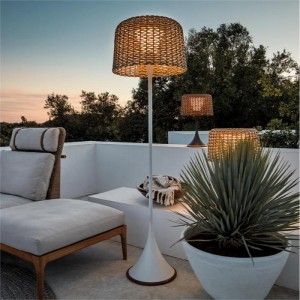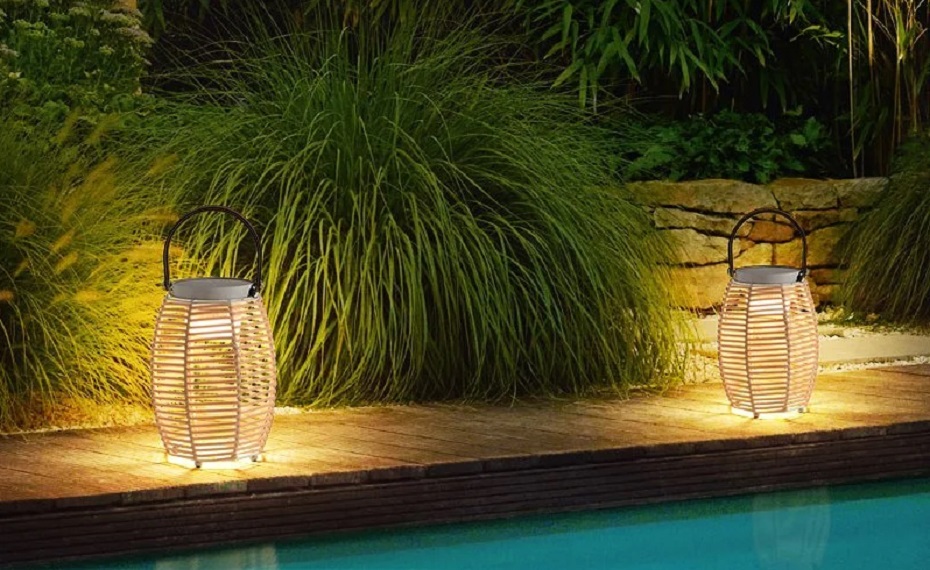In the competitive world of B2B procurement, ensuring the quality and safety of outdoor lighting products is crucial for both suppliers and buyers. High-quality outdoor lighting is not only a reflection of a company’s commitment to excellence but also a key factor in long-term durability, customer satisfaction, and compliance with international standards. To make informed purchasing decisions, businesses must be aware of the relevant quality standards and certifications.
1. Why Quality Standards Matter in B2B Procurement
Quality standards serve as benchmarks to ensure that outdoor lighting products meet specific requirements related to safety, durability, energy efficiency, and environmental impact. For B2B buyers, adhering to these standards is critical to:
· Ensuring safety and performance: Compliance with safety regulations helps avoid product malfunctions and potential hazards in outdoor spaces.
· Meeting project specifications: Engineering firms, designers, and contractors often work within strict guidelines, and products must align with these standards.
· Reducing maintenance costs: High-quality lighting minimizes repair and replacement, leading to better cost efficiency in the long run.
· Enhancing brand reputation: Sourcing from manufacturers with strong adherence to standards reinforces trust in product quality and reliability.
2. Key Certifications for Outdoor Lighting
B2B buyers should be aware of various certifications that ensure products meet international or regional standards. Below are some of the most recognized certifications:
CE Certification (Conformité Européenne)
The CE mark is mandatory for products sold in the European Economic Area (EEA). It indicates that a product meets European Union (EU) safety, health, and environmental protection requirements. For outdoor lighting, this includes:
Electrical safety
Electromagnetic compatibility
Energy efficiency
UL Certification (Underwriters Laboratories)
UL certification is widely recognized in the United States and Canada. Products with UL marking are tested for safety and performance, ensuring they comply with North American electrical safety standards. It includes rigorous tests for:
Fire hazards
Electrical shock prevention
Durability under outdoor conditions
ROHS (Restriction of Hazardous Substances)
The ROHS directive restricts the use of specific hazardous materials, such as lead and mercury, in electrical and electronic products. ROHS compliance is essential for environmentally conscious buyers and helps businesses align with global sustainability goals.
IP Rating (Ingress Protection Rating)
Outdoor lighting must be resistant to dust, moisture, and weather conditions. The IP rating system is used to classify the degree of protection a fixture offers. For example, an IP65-rated light is dust-tight and protected against water jets, making it suitable for outdoor use. Understanding IP ratings helps buyers select lighting that can withstand the environmental demands of their project location.
Energy Star Certification
Energy Star is a certification program that identifies energy-efficient products. Lighting that meets Energy Star standards uses less power, thereby reducing energy costs. This certification is particularly important for businesses seeking sustainable lighting solutions that comply with environmental regulations.
3. Performance and Durability Standards
hen choosing outdoor lighting, B2B buyers should focus on durability and performance-related standards. Outdoor environments expose lighting fixtures to various elements, including extreme temperatures, rain, and UV rays. Key performance factors include:
· Corrosion Resistance: Materials like aluminum and stainless steel often meet higher corrosion resistance standards, extending the lifespan of outdoor lighting.
· UV Resistance: UV-resistant coatings protect lighting fixtures from fading and degradation caused by long-term exposure to sunlight.
· Impact Resistance: For areas prone to physical damage or vandalism, buyers should look for lights with high impact resistance, such as IK ratings (impact protection).
4. Environmental and Sustainability Certifications
As sustainability becomes a core focus for many businesses, environmental certifications are increasingly relevant. Buyers should seek products with certifications that demonstrate a commitment to sustainability and eco-friendly practices.
LEED (Leadership in Energy and Environmental Design)
LEED certification is awarded to energy-efficient and environmentally responsible buildings. Although LEED primarily evaluates entire buildings, outdoor lighting that contributes to energy savings and reduced environmental impact can support LEED points.
ISO 14001 Certification
This international standard sets out the criteria for an effective environmental management system (EMS). Manufacturers that achieve ISO 14001 certification demonstrate their commitment to reducing environmental impact, ensuring that products are produced in an environmentally responsible manner.
5. Verifying Compliance in B2B Procurement
For buyers in the B2B space, it’s essential to ensure that the outdoor lighting products they purchase comply with the relevant standards and certifications. This can be done by:
· Requesting documentation: Always request certification documents from manufacturers or suppliers to verify compliance.
· Testing reports: Some projects may require additional testing, so ask for product testing reports to ensure the lighting meets performance and safety requirements.
· Site visits and audits: In large-scale or critical projects, it may be beneficial to conduct site visits or third-party audits to assess the manufacturing process and quality control measures.
6. The Role of Customization in Meeting Standards
For many B2B clients, customization is essential to meet project-specific needs. Manufacturers should be flexible in offering custom designs while ensuring that any modified product maintains compliance with the required certifications. Whether adapting IP ratings, adjusting energy efficiency, or offering specific materials, custom lighting solutions must still adhere to all relevant quality standards.
Quality standards and certifications are fundamental in B2B procurement for outdoor lighting. By understanding and prioritizing certifications such as CE, UL, ROHS, IP ratings, and Energy Star, businesses can ensure they source high-quality, safe, and durable lighting products. Beyond compliance, buyers should also consider performance and environmental certifications to support long-term cost savings, durability, and sustainability goals. In an increasingly competitive market, selecting certified products enhances project outcomes and strengthens business relationships, reinforcing trust in both product and supplier.
This knowledge not only ensures a better procurement process but also aligns with evolving industry trends and global regulatory demands.
If You Are in Business, You May Like
Recommend Reading
Post time: Sep-20-2024










